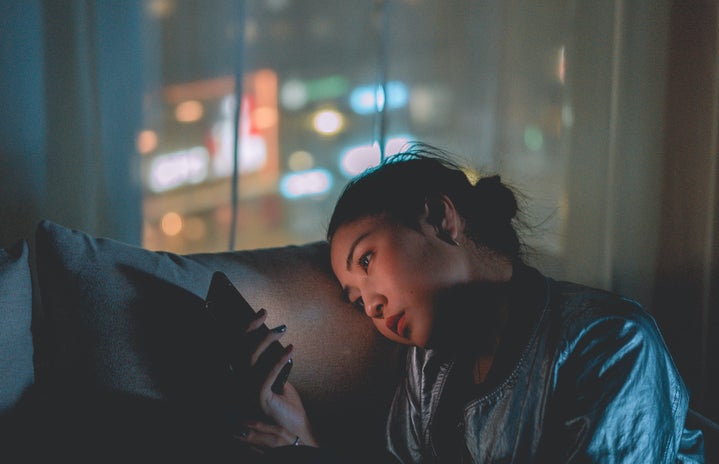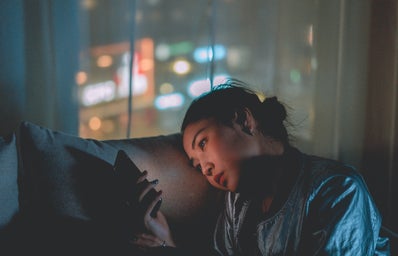It’s 3 am in deepest Alaska. A first-time mother lies awake, typing frantically, funnelling her anxieties into her phone. From a Warsaw apartment comes the reply; a nurse in her late 60s attempts to calm the young woman’s nerves and offer a piece of advice. As capitalism has expanded, and the market for technology has advanced, engaging with fellow humanity has become easier than ever. People who would never have otherwise met are magnetically drawn together to gush, debate, or grieve about whichever highly niche experience they are currently undergoing. However, these small victories seem somewhat pyrrhic when compared to the complete isolation that occurs when the WiFi goes out, a problem is deemed “unrelatable”, or perhaps when one cannot afford their phone contract anymore.
To some extent, it seems that we have lost sight of empathy, have lost sight of our willingness to be understanding or to offer support. Siloed, perhaps quarantined, as family units, individuals, and workers, everything is “your problem” and you are expected to find resolutions all alone. If your toddler is throwing a tantrum in Sainsbury’s while you struggle to control a faulty trolley, you will receive dirty looks, not sympathy; if you see someone lying on the street, you should just step over them – they must have done something to deserve this; if your mother’s funeral took place on Sunday, of course it makes sense to timetable a compulsory meeting at 9 am on Monday morning – you should have gotten over it by then…right?
As a symptom of this, I believe that our society has developed a desperate yearning for true community and connection. One manifestation of this is the phenomenon of collective screaming, a therapeutic method where people gather to share in their anguish. I recently attended a Tate Modern Late devoted to the work of Yoko Ono, with one activity including a singer’s improvisation of Ono’s 1961 vocal creation, Voice Piece for Soprano. The piece is composed as a list of instructions, commanding the interpreter to scream against the wind, the wall, and finally, the sky. At the singer’s direction, every person gathered in the concrete hall was invited to join in a united wail. Screaming is generally cathartic, but capitalist nations, in their idolising of politeness and civility, require suppression of such strong expressions of emotion, so a pillow tends to bear the brunt of your inmost afflictions. Being able to howl freely and without judgement, amongst a collective, was incredibly moving, and spoke to something primal within me that I hadn’t even realised existed. It also made me wonder where else I had heard this cry, ringing out from stifled masses all over the globe. The first that came to mind was that led by Florence Pugh in Ari Aster’s A24 psychological horror Midsommar. The scene features the distraught Dani, sobbing in unison with a group of female cult members. They mimic her facial expressions, noises, and movements until this embodied empathy heals her. Another instance includes a TikTok trend encouraging participants to visit remote areas with family and friends and scream their causes of grief into the sky. Evidently, there is a need to hear and to be heard that the Reddit forums simply can’t fix.
Ancient Igbo proverb, “Oran a azu nwa”, tells us that it takes a village to raise a child. I would argue that this might be extended – it takes a village for a human to flourish. The individualist notion that we must struggle-on solo, hidden away in holes in the city wall is not sustainable for a society to thrive. Jhumpa Lahiri’s short story Mrs. Sen’s, within her larger collection, The Interpreter of Maladies, illuminated this clearly to me. The character Mrs. Sen recounts a fond memory of her life in Calcutta, where for any occasion, all the women in the neighbourhood would gather to slice vegetables and gossip together. Although their chattering prevented her from sleeping, she feels that the West is far too silent, with everyone slicing their own vegetables and tucked up in their own houses. During the recent pandemic, the moments that we felt the most connected were when we stepped outside our houses and joined in a cacophony of pots and pans. Whether making a din or making dinner, community is essential to human life.
People, and specifically women, need other people to survive and to heal. The physical distances between us might have been lessened by technology, but the emotional distances have been vastly increased. How can we tackle that? Perhaps we need to scream together, perhaps we need to collectively slice vegetables, or perhaps we just need to employ a bit more empathy in our interactions with each other.


